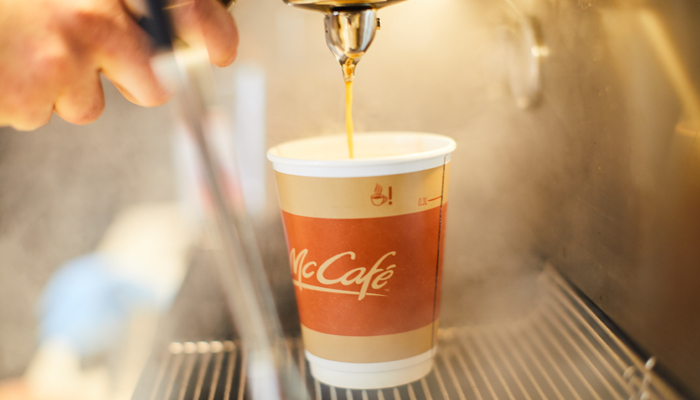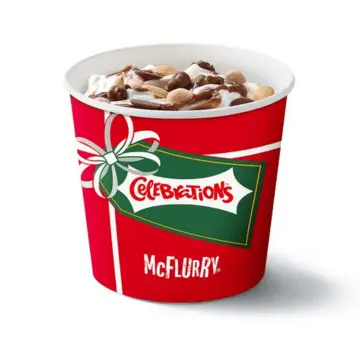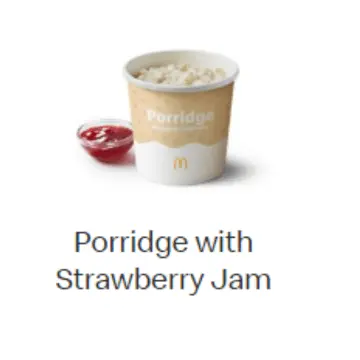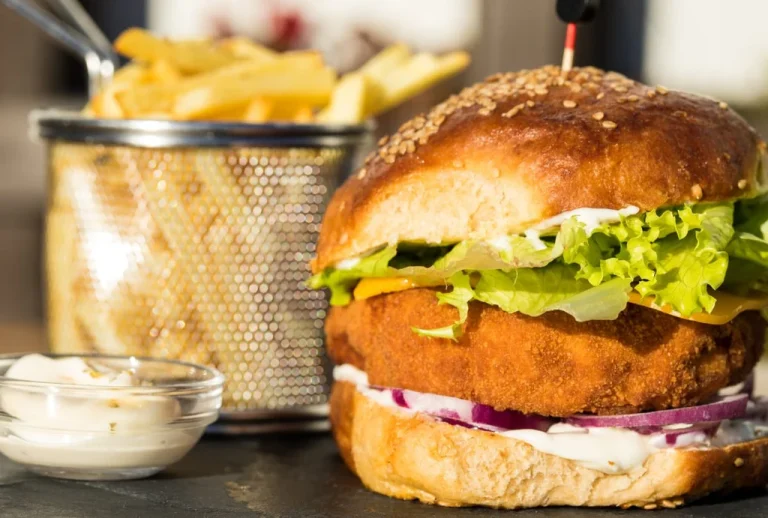“Is McDonald’s Coffee Fair Trade: Latest Texas Longhorns News”
Many people start their day with a cup of coffee from Is McDonald’s Coffee Fair Trade, but have you ever wondered where that coffee comes from and how it is sourced? We have some exciting news for all coffee lovers and fans of Fair Trade practices.
McDonald’s recently announced that it will serve Fair Trade-certified coffee in over 650 locations in New England and Albany, N.Y. But the question remains: Is McDonald’s Coffee Fair Trade? Keep reading to learn more about this latest development in coffee and the Texas Longhorns.
What Is Fair Trade Certified Coffee?
Fair Trade Certified coffee stands as a beacon of hope. It symbolizes a commitment to equitable trade practices and ensures that coffee farmers receive a fair wage. This certification is not just a label; it’s a lifeline for small-scale farmers across the globe.
Importantly, it also promotes sustainable farming methods. This is critical in preserving our planet for future generations. Moreover, the certification process is rigorous. It demands transparency and fairness at every step.
For consumers, it offers a way to support ethical practices. Simply by choosing Fair Trade coffee, they make a powerful statement. Together, we can foster a more just and sustainable world. This certification is indeed a pivotal piece of the puzzle.
Related: McDonald’s Menu For Kids: Balanced And Fun Options
Benefits of Fair Trade for Coffee Farmers
Guaranteed Minimum Price:
Fair Trade certification ensures coffee farmers receive a guaranteed minimum price for their crops, providing much-needed financial stability.
Community Development Premiums:
Beyond individual benefits, Fair Trade includes premiums that are invested back into the community, funding education, healthcare, and infrastructure improvements.
Empowerment through Direct Trade:
Fair Trade empowers farmers by facilitating direct trade with buyers, eliminating middlemen, and increasing farmers’ profit share.
Support for Sustainable Practices:
This certification encourages and supports sustainable farming practices, helping farmers improve their crop quality and environmental sustainability.
Access to International Markets:
Fair Trade certification opens doors for small-scale farmers to international markets, which they might not have had access to otherwise, broadening their selling horizons significantly.
Enhanced Quality and Productivity:
With fair income and community investments, farmers can afford better farming inputs and training, leading to higher-quality coffee and greater productivity.
The Impact of Price Fluctuations on Small-Scale Farmers
The market’s whims can profoundly affect small-scale farmers. These fluctuations often cause them to face financial instability. When coffee prices drop, their livelihoods are directly threatened, which can lead to a cycle of poverty.
It’s not just their income that’s at risk. Investment in their farms diminishes, reducing quality and yield. Furthermore, this unpredictability makes planning almost impossible. For them, stability is a luxury.
Fortunately, Fair Trade offers a glimmer of hope. It ensures they receive a minimum price and provides a premium for community development. Consequently, this aids in cushioning the blow, thus improving their economic security.
Is McDonald’s Coffee Fair Trade
McDonald’s is making a bold move towards ethical sourcing. This initiative shows their dedication to supporting sustainable agriculture. By partnering with Newman’s Own Organics and Green Mountain Coffee Roasters, they ensure quality and fairness.
This decision impacts over 650 locations, a significant step for the chain. It reflects a growing trend of corporate responsibility in the fast-food industry. Moreover, it aligns McDonald’s with consumer expectations for ethical products.
They’re not just selling coffee; they’re promoting fairness and sustainability. This effort demonstrates McDonald’s commitment to making a positive change. They are setting a new standard for large corporations. Indeed, this is a notable advance in their business practices.
Market Growth of Fair Trade Certified Coffee
The demand for Fair Trade Certified coffee has soared. Each year, it has witnessed impressive growth. Since 1999, this growth has averaged over 70%, a testament to its increasing popularity. Consumers are becoming more ethically conscious.
They prefer products that support fair wages and sustainability. As a result, Fair Trade coffee has expanded rapidly. It’s now offered by more than 400 coffee companies and is available in over 20,000 retail locations across the U.S.
This surge reflects a shift in consumer preferences. Indeed, people are choosing to support a more equitable trade system, which is making a significant impact. It benefits not only the farmers but also the environment.
Availability of Fair Trade Coffee in the U.S.
Fair Trade coffee is steadily becoming a staple. Across the United States, it’s more accessible than ever. Now, shoppers can find it in supermarkets and cafes alike. Indeed, the options are expanding from coast to coast.
This growth means consumers have the power to choose. They can pick coffee that supports fairness and sustainability. Each purchase helps small-scale farmers thrive. It’s a simple yet impactful way to make a difference.
Additionally, online platforms have joined the movement. They offer a wide variety of Fair Trade coffees. So, finding your favorite blend is easier than you might think. Indeed, supporting ethical practices has never been more convenient.
Consumer Awareness and Preferences
Today’s consumers are more informed than ever before. They diligently research the origins of their purchases. Importantly, their choices reflect a desire for ethical consumption. Indeed, awareness around Fair Trade has significantly increased.
Consequently, preferences are shifting towards sustainably sourced products. This trend is evident in the rising demand for Fair Trade coffee. Interestingly, social media plays a pivotal role in this shift. Through it, stories of small-scale farmers and their challenges reach a global audience.
As a result, consumers are choosing to support fairness and sustainability with every cup. Moreover, this conscious decision-making process is reshaping the marketplace. Brands are now recognizing the value of aligning with these ethical preferences.
The Role of Newman’s Own Organics
Newman’s Own Organics brings a unique aspect to this initiative. They provide organic, Fair Trade-certified beans, which form the backbone of McDonald’s new coffee offering. This partnership highlights the importance of ethical sourcing.
It also emphasizes the role of organic practices in sustainability. Newman’s Own Organics ensures that its coffee meets strict standards. This commitment guarantees both quality and fairness, resulting in superior cups of coffee.
Additionally, this collaboration supports farmers and their communities. It sets a positive example for others in the industry. Newman’s Own Organics plays a crucial role. They help make McDonald’s commitment to Fair Trade a reality.
Green Mountain Coffee Roasters Involvement
Green Mountain Coffee Roasters plays a pivotal role. Their expertise in roasting enriches the flavor profile. They meticulously select beans for McDonald’s. This selection guarantees the coffee’s supreme quality. Their involvement ensures sustainability in the supply chain.
Furthermore, their roasting process highlights organic qualities. Green Mountain’s commitment aligns with Fair Trade principles. They focus on ethical sourcing and environmental stewardship.
This collaboration enhances the coffee’s journey from farm to cup and supports farmers and their communities. Thus, Green Mountain is integral to Is McDonald’s Coffee Fair Trade initiative. They bring unmatched skill and ethical practices to the table, elevating the coffee experience for consumers.
The Future of Is McDonald’s Coffee Fair Trade
Looking ahead, the trajectory for Fair Trade coffee at McDonald’s is promising. This initiative may well inspire other fast-food giants to follow suit. Indeed, it sets a powerful precedent. Additionally, customer support could drive even wider adoption.
As awareness grows, so too might the menu offerings. Perhaps organic, Fair Trade teas or chocolates will join the lineup. Each step forward will undoubtedly strengthen McDonald’s commitment to sustainability.
Moreover, the success of this program could lead to global expansion. Ultimately, this move by McDonald’s marks a significant shift. It underscores the importance of ethical sourcing in today’s marketplace. The future looks bright for Fair Trade coffee at McDonald’s.
Frequently Asked Questions (FAQs) About Is McDonald’s Coffee Fair Trade
What Is Fair Trade Coffee?
Fair Trade coffee ensures that coffee farmers are paid fairly for their beans, fostering a sustainable and ethical environment for their businesses.
Is McDonald’s Coffee Fair Trade Certified?
Only 658 restaurants in New England and Albany, N.Y. currently serve 100% Fair Trade-certified organic coffee, aiming to expand.
How Does Fair Trade Benefit Farmers?
It guarantees a minimum price for their coffee, financial security, and funds for community development, which directly contributes to an improved standard of living.
Can Consumers Notice a Taste Difference with Fair Trade Coffee?
Many report a richer and more robust flavor profile, thanks to the organic farming practices and quality improvements funded by Fair Trade premiums.
Where Can I Find Is McDonald’s Coffee Fair Trade?
It is currently available in select locations across New England and Albany, N.Y., and, based on customer demand and support, it hopes to increase availability.
Conclusion About Is McDonald’s Coffee Fair Trade
In conclusion, the evidence is clear. McDonald’s has embraced Fair Trade practices. This decision supports coffee farmers financially. It also fosters sustainability in farming. The partnership with Newman’s Own and Green Mountain is critical.
Together, they ensure the coffee is ethically sourced. This move by McDonald’s is a significant stride. It reflects a commitment to quality and fairness. Thus, when you enjoy a cup of McDonald’s coffee, you’re part of a larger good.
It’s more than just coffee; it’s a step towards a more ethical world. So, yes, McDonald’s coffee is indeed Fair Trade certified, marking a positive change in the industry.







